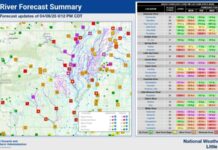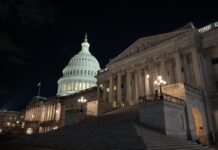
WASHINGTON (States Newsroom) — Department of Justice Special Counsel Jack Smith asked the U.S. Supreme Court on Monday to expedite a decision on former President Donald Trump’s claims of presidential immunity in the 2020 election interference case.
Smith asked the justices to rule on a matter that ordinarily would first go to a lower federal appeals court, arguing that another layer of appellate action would likely mean the Supreme Court wouldn’t hear the case until its term beginning in fall 2024, delaying the trial even further.
Such a delay would push a Supreme Court decision into the heat of a general election, when Trump is favored to again be the Republican candidate for president.
A definitive answer from the Supreme Court would keep the trial slated to begin March 4, 2024, on schedule, Smith said.
“The United States recognizes that this is an extraordinary request,” Smith wrote. “This is an extraordinary case.”
In a statement from the Trump campaign, an unnamed spokesperson repeated Trump’s position that the prosecution is politically motivated.
“Crooked Joe Biden’s henchman, Deranged Jack Smith is so obsessed with interfering in the 2024 Presidential Election with the goal of preventing President Trump from retaking the Oval Office, as the President is poised to do, that Smith is willing to try for a Hail Mary by racing to the Supreme Court and attempting to bypass the appellate process,” the spokesperson said.
District court ruling
The case, one of four criminal proceedings the former president faces as he campaigns for another term in the White House, involves claims he sought to illegally overturn his reelection loss in 2020.
Earlier this month, U.S. District Court Judge Tanya Chutkan denied Trump’s motion to dismiss the case based on the argument that as a former president, he is protected from criminal prosecution and that he was already acquitted by the U.S. Senate in an impeachment trial.
Trump appealed that ruling last week to the D.C. Circuit Court of Appeals, an intermediate venue between the district court and the Supreme Court, and asked the trial court to pause proceedings while the appeal is ongoing.
Trump’s legal team in early October filed a motion to dismiss the case based on presidential immunity.
The scheduling situation is similar to what courts faced as President Richard Nixon’s 1974 trial date on charges related to the Watergate scandal approached, Smith said Monday. In that case, the Supreme Court accepted prosecutors’ argument and expedited the appeal, he wrote, adding that the high court should make a similar ruling for Trump.
“It is of paramount public importance that respondent’s claims of immunity be resolved as expeditiously as possible — and, if respondent is not immune, that he receive a fair and speedy trial on these charges,” Smith wrote. “The public, respondent, and the government are entitled to nothing less.”
Prosecutors also asked the D.C. Circuit Appeals Court on Monday to expedite Trump’s appeal in that court if the Supreme Court declines to rule on the issue.
Election interference and other criminal charges
A federal grand jury indicted Trump in August on four counts for his alleged role in knowingly attempting to subvert the 2020 presidential election results through a series of illegal actions and false statements that culminated in the Jan. 6, 2021 attack on the U.S. Capitol.
The charges filed in the U.S. District Court for the District of Columbia included conspiracy to defraud the U.S.; conspiracy to obstruct an official proceeding; obstruction of, and attempt to obstruct, an official proceeding; and conspiracy against rights.
The 45-page indictment details false statements that Trump and unnamed co-conspirators made about election results in Arizona, Georgia, Michigan, Nevada, New Mexico, Pennsylvania, and Wisconsin, and the subsequent fake electors scheme the group devised for those states.
The indictment also detailed Trump’s pressure campaign on former Vice President Mike Pence to “enlist” him in overturning election results.
Trump is facing four criminal cases as well as civil proceedings over his business matters in New York state as he leads in several polls ahead of the 2024 Republican presidential primary season. With less than five weeks left before the Iowa first-in-the-nation GOP presidential caucuses, a Des Moines Register/NBC News/Mediacom poll released Monday found Trump is the first choice of 51% of caucus-goers surveyed.
In addition to federal election fraud charges in Washington, D.C. scheduled for trial in March, Trump is facing another potential March criminal trial in New York state for alleged hush money payments to an adult film star.
The former president also faces a federal criminal trial in Florida in May over felony charges alleging he removed classified documents from the White House at the end of his presidency and improperly stored them at Mar-a-Lago, his South Florida estate.
A trial date has not been set for a Georgia indictment alleging that Trump and several co-defendants engaged in racketeering and criminal organization to interfere with 2020 presidential election results.
Attorneys for Trump did not immediately respond to a message seeking comment Monday.







